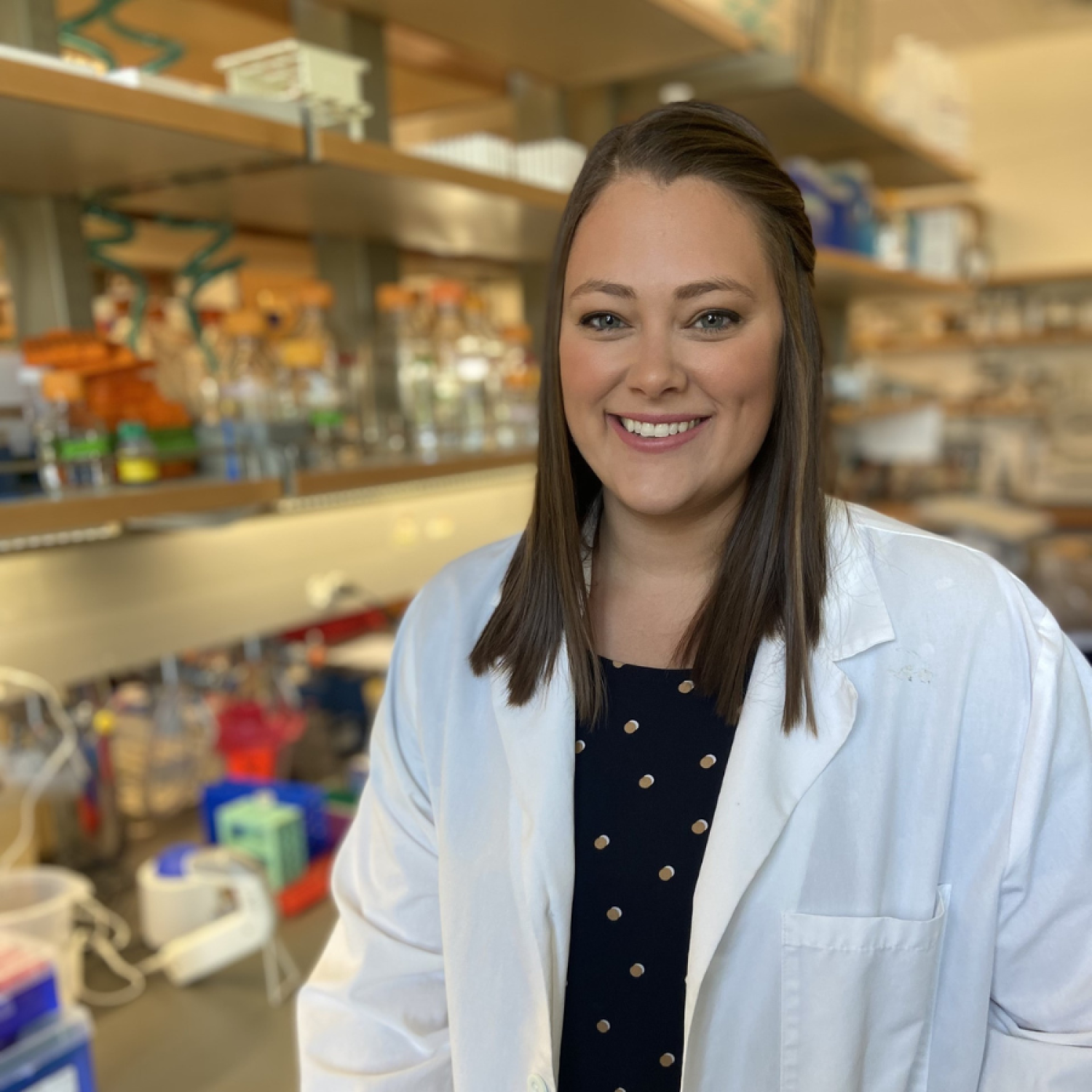Nicole Marie Hoitsma Recognized as a 2023 Damon Runyon Fellow
Damon Runyon Cancer Research Foundation awards $3.9 million to exceptional early-career scientists
Nicole Marie Hoitsma, PhD [HHMI Fellow], with her sponsor Karolin Luger, PhD, at University of Colorado, Boulder, has been named one of 13 new Damon Runyon Fellows by the Damon Runyon Cancer Research Foundation.
The Damon Runyon Cancer Research Foundation has named 13 new Damon Runyon Fellows, exceptional postdoctoral scientists conducting basic and translational cancer research in the laboratories of leading senior investigators. This prestigious Fellowship encourages the nation's most promising young scientists to pursue careers in cancer research by providing them with independent funding to investigate cancer causes, mechanisms, therapies, and prevention. In July 2023, the Board of Directors announced at 15% increase in the Fellowship stipend, bringing the total to $300,000 over the award's four-year term.
“Over the past three decades, the rate of cancer mortality in the U.S. has dropped by a third, saving an estimated 3.8 million lives. This is because of earlier diagnoses, a better fundamental understanding of the genetic changes that take place in a cancer cell, and personalized treatment options like targeted therapy and immunotherapy. Damon Runyon scientists have been a part of each and every one of these advances,” said Yung S. Lie, PhD, President and CEO of Damon Runyon. “We fund the best young talent—risk takers and innovators. I am confident that because of the research being done by our scientists, this trend will continue, such that ultimately cancer will be a fully treatable disease. My optimism is shared by the cancer research community.”
About Hoitsma's Research:
Human cells have complex mechanisms to repair DNA damage, such as that caused by exposure to sunlight or chemical substances. If DNA is not properly repaired, however, it can lead to cancer. In fact, faulty DNA repair has been associated with the initiation and progression of all types of cancer and is often targeted in cancer treatment to stop uncontrolled cell growth. A better understanding of how cells naturally defend against DNA damage will allow for the development of better drugs to treat cancer. Dr. Hoitsma aims to investigate specialized proteins, known as chromatin remodelers, that make damaged DNA accessible for repair. This research will provide insight for the development of novel therapeutic strategies to target these critical pathways. Dr. Hoitsma received her PhD from University of Kansas Medical Center, Kansas City and her BS from South Dakota State University, Brookings.



